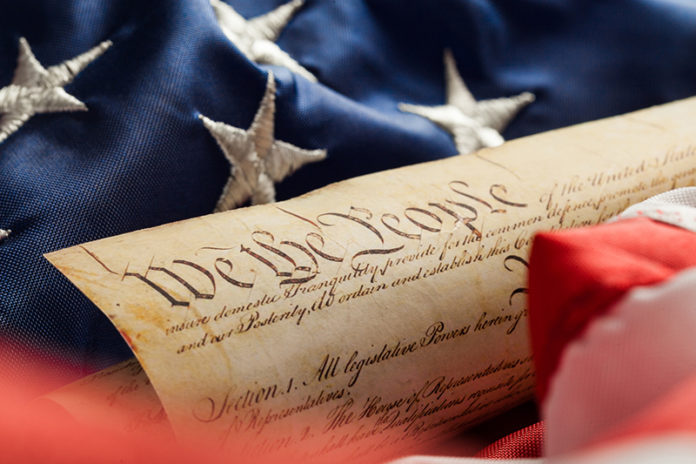Many people, looking back on their lives, wonder if anything they’ve done made any difference in the lives of their fellow humans. Yale Kamisar only had to turn on any TV police drama to be reminded that millions of people had benefited from his work.
Kamisar, who died at age 92 on Jan. 30, was a law professor who spent most of his career at the University of Michigan. Like most academics, he toiled away without imposing unduly on the attention of the public at large.
But in 1966, the Supreme Court took notice of an article he had written contrasting the protections afforded defendants in court with the conditions suspects endured when being questioned in police stations. The justices cited the essay four times in one of the most important decisions of the past century, Miranda v. Arizona.
That decision, with a majority opinion by Chief Justice Earl Warren, required police to recite a warning to anyone they arrest: “You have the right to remain silent. Anything you say can and will be used against you in a court of law. You have the right to an attorney. If you cannot afford an attorney, one will be provided for you.”
The case involved Ernesto Miranda, who signed a confession only after being handcuffed, forced to stand and browbeaten for four hours by police, who ignored his plea for an attorney and, when his lawyer arrived, refused to grant him access to his client. Such abuses were common police practice at the time, but Kamisar helped the court see a way to combat it.
John F. Kennedy once said, “Victory has a hundred fathers, but defeat is an orphan.” It was only Kamisar, though, who became known as “the father of Miranda.”
The point of the ruling was to give suspects a measure of protection in the coercive environment of a police station. It was controversial not only at the time but for decades afterward. An official in Richard Nixon’s Justice Department argued that the Miranda warning would harm public safety by “preventing a defendant from making any statement at all.”
But the concept gained broad acceptance, and in 2000, the Supreme Court strongly, and unexpectedly, reaffirmed it. “Miranda has become embedded in routine police practice to the point where the warnings have become part of our national culture,” said the court — in an opinion written by that former Justice Department official, Chief Justice William Rehnquist.
The Miranda warning was not enough by itself to prevent police abuses, as Kamisar recognized. He was an early proponent of recording interrogations — an idea that has been adopted by more than half the states. But the warning serves as a regular reminder to police, suspects and the public that even the worst of us have rights that the government must respect.
Kamisar might have kicked back and spent the rest of his life dining out on that achievement. But his prodigious scholarship continued, and it continued to be a formidable influence on other matters, being cited in more than 30 Supreme Court decisions.
Remember that line in the Miranda warning about your right to a lawyer, at public expense if necessary? It stems from the court’s 1963 decision that the Constitution requires ensuring that defendants have legal counsel — a decision that also cited Kamisar.
He was vigilant in trying to make sure that constitutional guarantees had real force. Among his most passionate causes was defending the exclusionary rule, which generally bars the use of evidence that police obtain through illegal searches.
When the Supreme Court applied this restriction to states in 1961, critics howled that it would cripple law enforcement and let the guilty go free. Kamisar pointed out that their complaint was really about the constitutional ban on unreasonable searches and seizures.
The court, after all, didn’t alter the Fourth Amendment or the obstacles it posed to law enforcement. All it did was provide a penalty and remedy for constitutional violations.
“If the police feared that evidence they were gathering in the customary manner would now be excluded by the courts,” Kamisar noted, “the police must have been violating the guarantee against unreasonable search and seizure all along.” The exclusionary rule made this fundamental liberty something more than a quaint ideal.
Constitutional rights are mere words on paper until human beings find ways to give them life. Americans have far more protection against police abuses than they once did, and Yale Kamisar is one of the reasons why.































